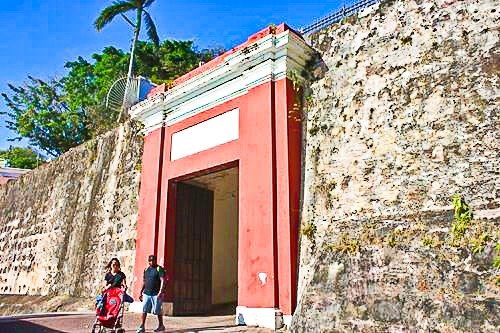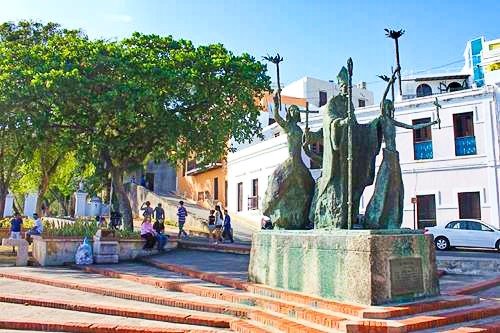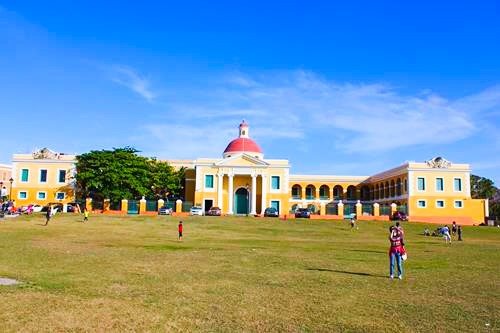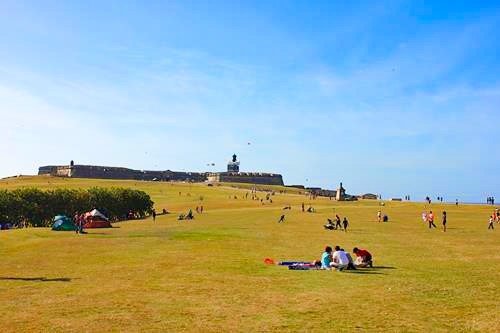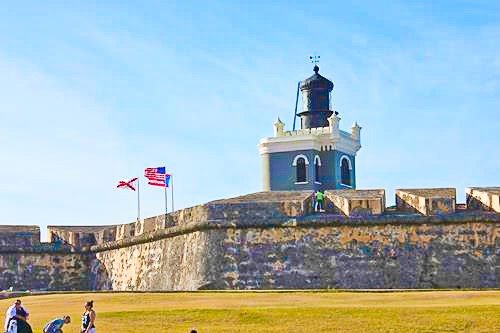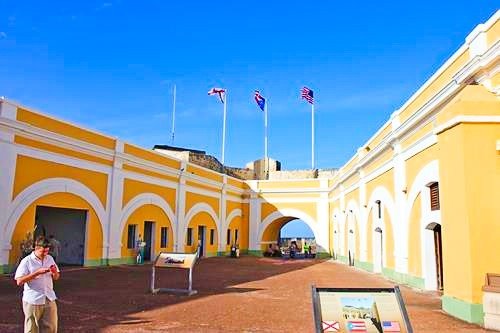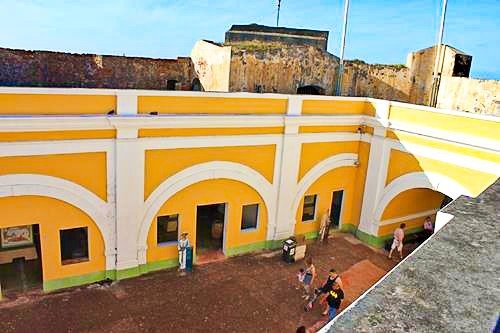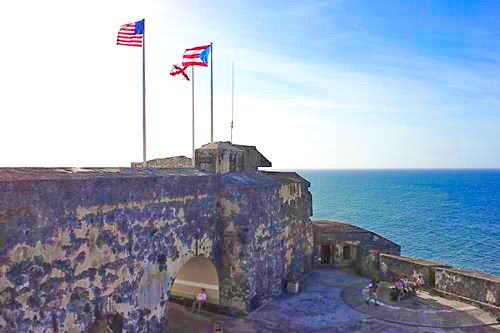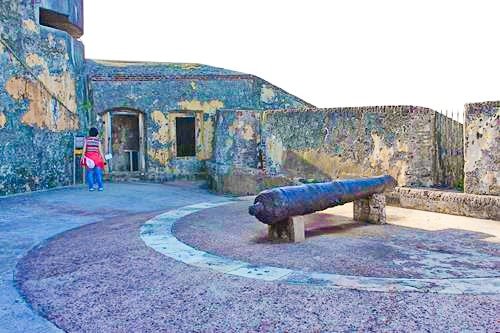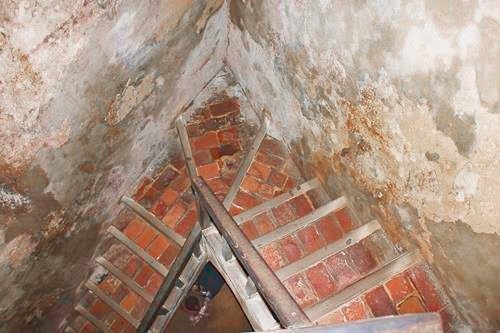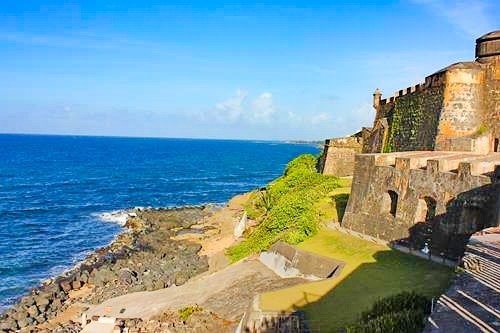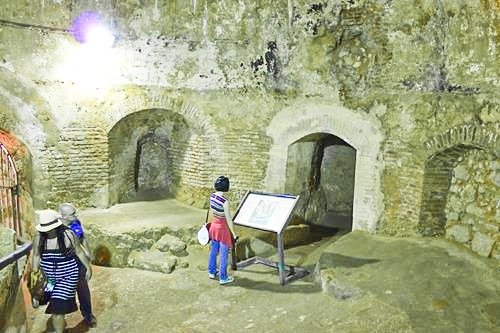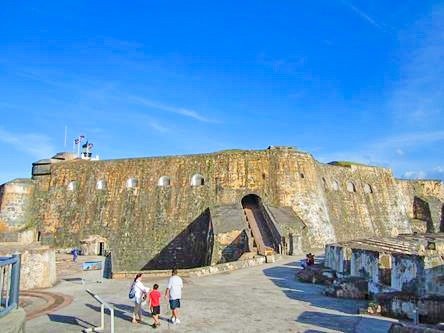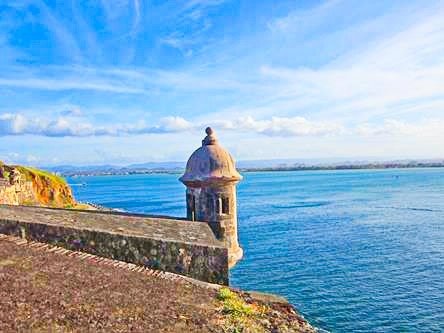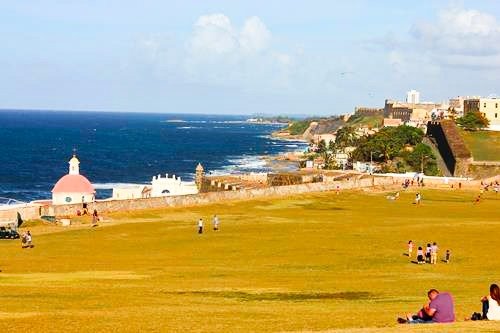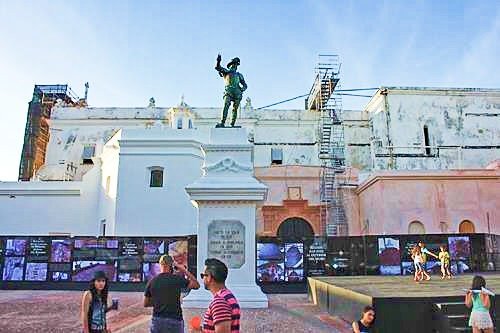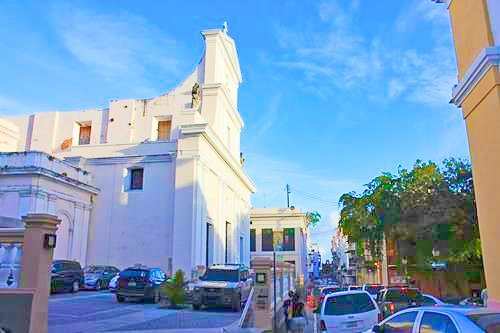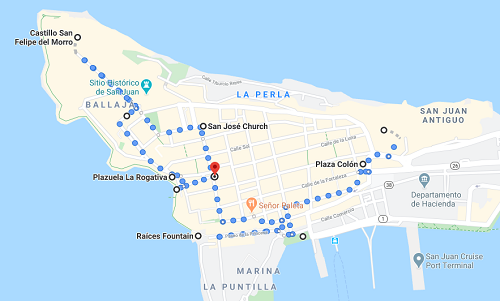To help support the expenses of hosting this blog, some of the links on this website are “affiliate links.” This means that, if you click on the link and purchase an item, I will receive a small commission from the seller; there is no added cost to you.
Self-Guided Walking Tour of Old San Juan - Puerto Rico Purple Guide
This Backpack and Snorkel Travel Guide (Puerto Rico Purple Guide) provides a self-guided walking tour of Old San Juan and ensures that you will be Making Memorable Moments on a relaxing vacation in Puerto Rico.
The information on this page and much more (google maps locations, more reviews, website links, etc.) is available in our Cruising the Caribbean Guide.
For Pinterest users, here are pins that you can use:
Plaza Colon
Beautiful plaza in a trendy part of town with many restaurants and stores, and popular in the evenings. The plaza is paved in marble and surrounds the statue of Christopher Columbus which was erected for the celebration of the fourth centennary of the Spanish rule in Puerto Rico.
Teatro Tapia
South of the plaza is Teatro Alejandro Tapia y Rivera or short "Teatro Tapia" which is the oldest drama stage in San Juan. It is named after the Puerto Rican poet and dramatist Alejandro Tapia y Rivera (1826-1882).
It used to be the center of cultural life in San Juan for over one hundred years until it fell into neglect and was almost demolished. It was restored in the late 1940s and again in 1976 and 1997 and now it shines in its old charm. It is being used as a venue for musical theater, drama and other cultural events.
La Casita de Rones
Continue southwest until you get to La Casita de Rones, a flagship store of Rums of Puerto Rico which also houses two bars and a restaurant. Stop by, relax, enjoy the water view, order a rum cocktail and have them some history with us about La Casita with you.
Paseo del Morro
Now walk towards the water and make a right (north) on Paseo del Morro. This path used to be a maintenance road for the city wall and is now a scenic and relaxing walk along the walls that once protected the city and a San Juan National Historic Site. Consider coming here for a romantic sunset.
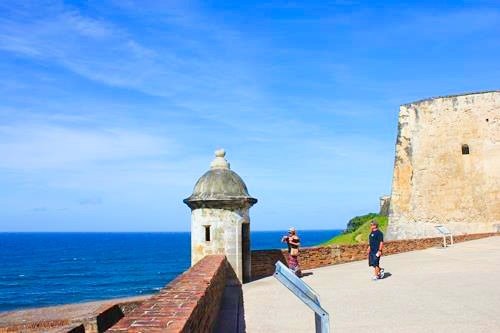
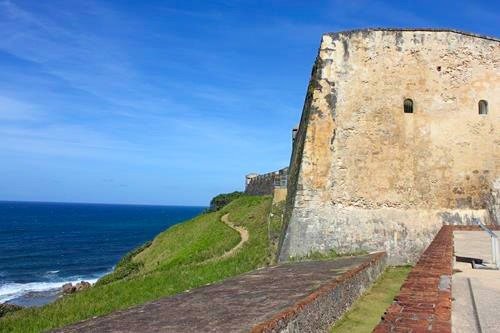
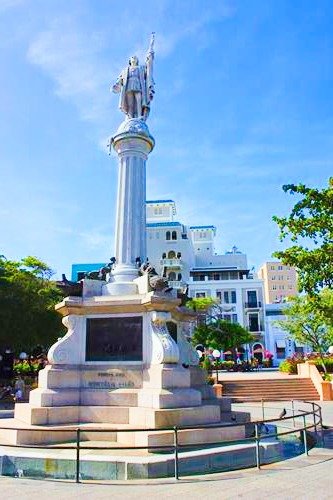
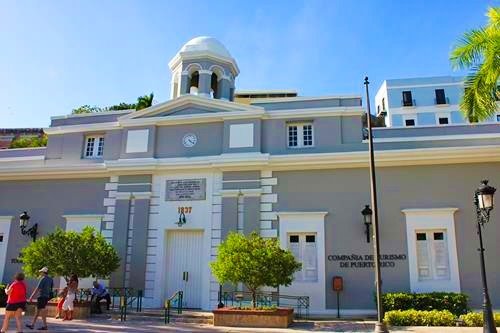
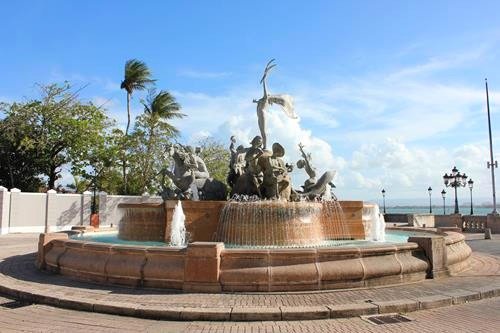
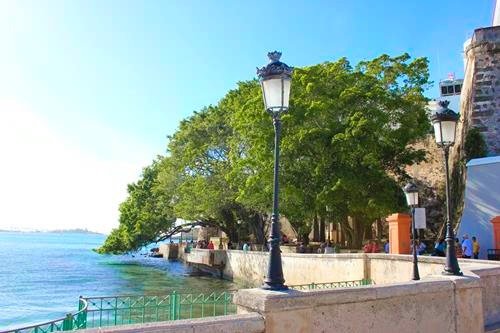
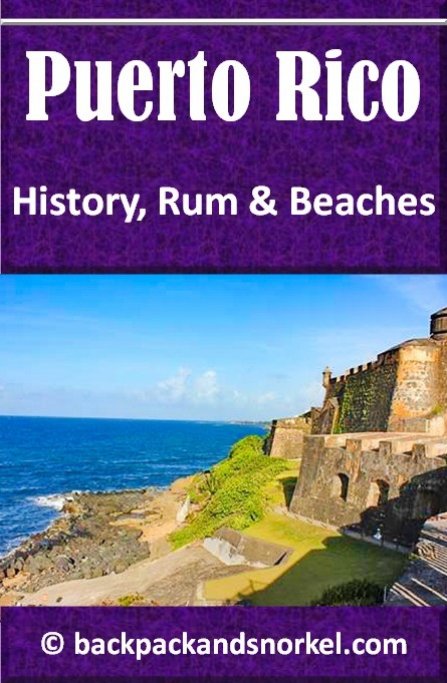
Aduana de San Juan (US Custom House)
When you leave La Casita, look across the water to the southwest and enjoy a glimps of Aduana de San Juan, the US Custom House. It is listed on the National Register of Historic Places and was established in the 18th century. The current building, however, was built in 1924 and the second story added in 1931.
Paseo de La Princesa
Now walk to the northwest and pass the traffic curcle to get to Paseo de La Princesa.
This street was named as “One of the Most Scenic Walkways in the World” and dates back to 1853. It is a busy place for locals and visitors alike by day and night. As you walk along the tree-lines street, you will see remains of the city wall which are part the San Juan National Historic Site. On weekends you willf find live music, food stands, and crafts vendors.
La Princesa
As you stroll along Paseo de La Princesa to the west, you will pass La Princesa, another one of many historic landmarks. It used to be a prison in the past and now serves as the Puerto Rico Tourism Company’s headquarters. La Princesa also houses the Puerto Rico art exhibit.
Self-Guided Walking Tour of Old San Juan (see our Travel Guide)
The Old San Juan section of San Juan was declared a World Heritage Site by the United Nations in 1983 as the "San Juan National Historic Site". It is beautifully restored and very walkable. Visitors can either explore the city on foot or with the free tourist trolley or by guided tour.
Below is a free self-guided tour for you which brings you to the highlights of this beautiful city. If you are looking for other things to see and do outside San Juan, then please check out my Puerto Rico Guide.
Start at Castillo San Cristobal
Castillo de San Cristobal was completed in 1785 and is situated on 27 acres of land which makes it the largest fort in Puerto Rico.
It was built to protect Old San Juan against attacks from the east. From here, the first shot of the Spanish-American War was fired in in 1898. In 1942, oncrete pillboxes and an underground bunker control center were added by the US army.
In 1961, the US army moved out and the US National Park Service took over the site.
In 1983, the "San Juan National Historic Site" encompassing the Old San Juan section of San Juan was declared a World Heritage Site by the United Nations.
Here are some more photos taken from various places inPuerto Rico
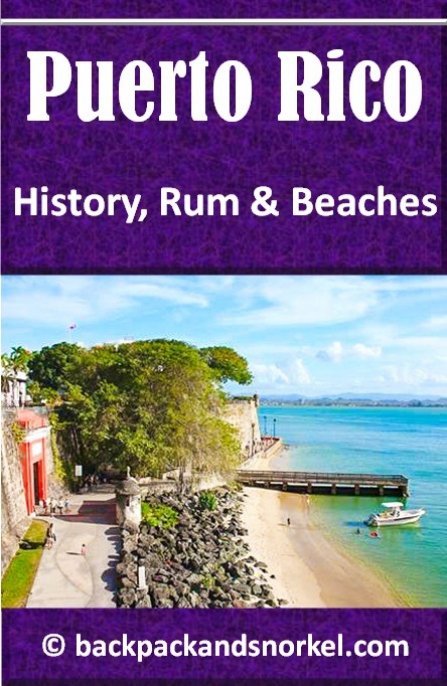
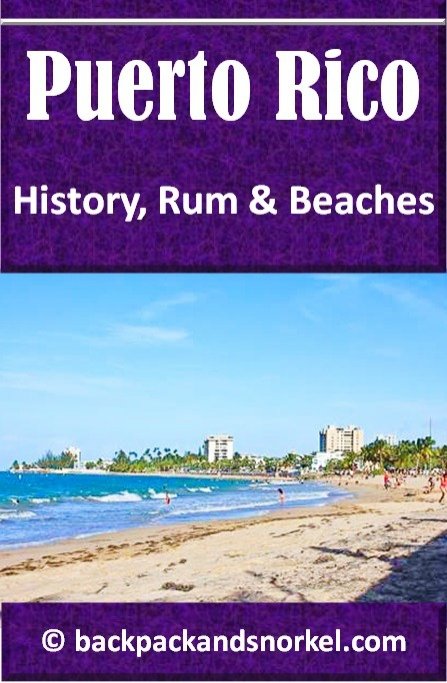
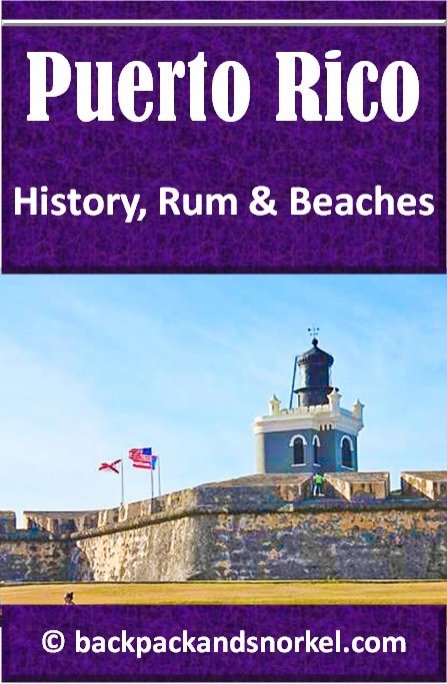
Are you interested in more white sand beaches and turquoise water destinations?
Check out my reviews of other Caribbean islands and Rudy's Cruise Guide.
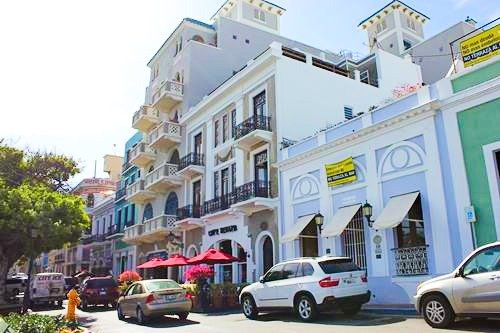
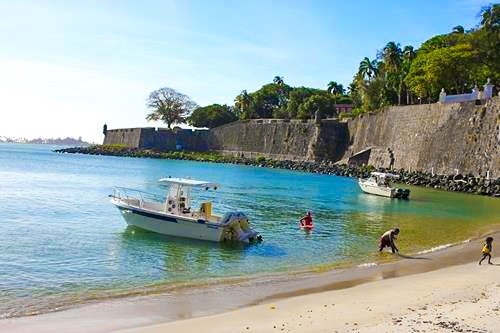
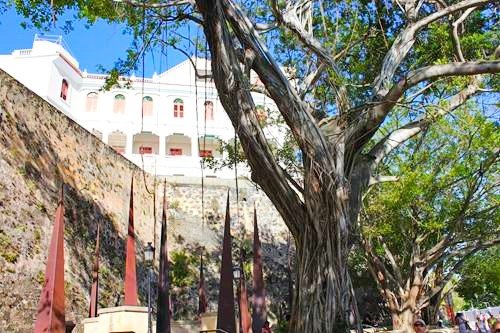
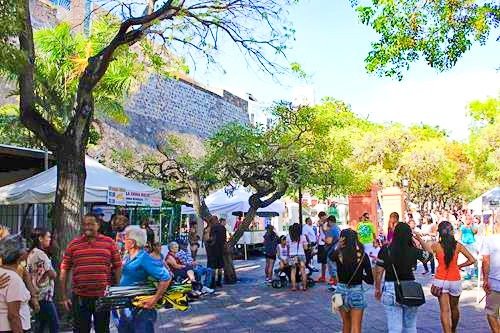
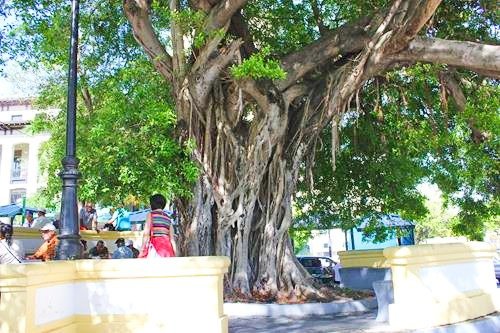
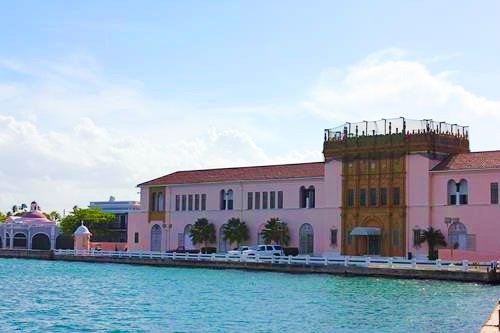
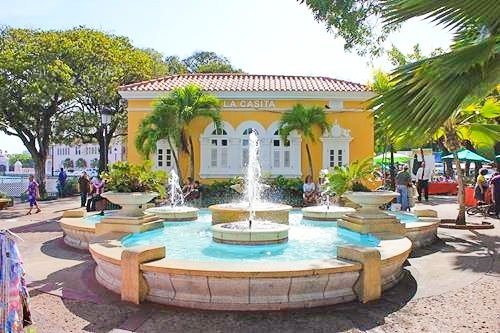
Raices Fountain
Keep walking to the west and you will come to the Raices Fountain which is considered to be one of the most romantic spots in Old San Juan. Come here and/or Paseo del Morro to enjoy the sunset and sit on the terraced decks near the fountain.
The Raíces Fountain was designed by architect Miguel Carlo to commemorate and celebrate the New World’s 500th anniversary and completed in May 1992. The bronze statues honor Puerto Rico’s mixed African, Spanish and Taino/Amerindian heritage.
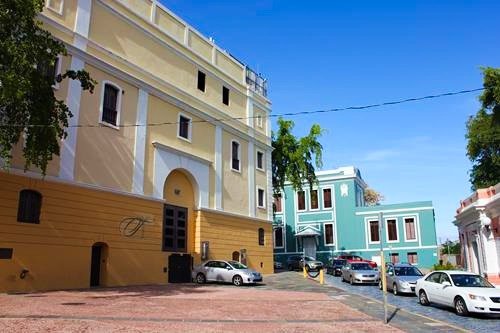
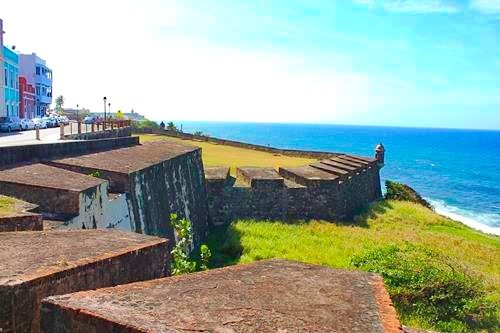
Puerta de San Juan
Puerta de San Juan was the main entrance to the city and one of five gates that allowed entrance into San Juan.
Plazuela La Rogativa
Walk through Puerta de San Juan, turn left and up the steps to the "La Rogativa" bronze statue at Plazuela La Rogativa. A Rogativa is a large procession of people that make a plea for help to God.
The historic relevance is that British troops under Sir Abercrombie started a naval blockade of San Juan on April 30, 1797. The desperate governor of San Juan ordered a “rogativa” and thus he and many women marched through the streets singing, praying and carrying torches. Abercrombie believing that the sights and sounds were caused by reinforcements, thought that he would be outnumbered and retreated.
Escuela de Artes Plásticas y Diseño de Puerto Rico
Follow the path up the hill until you reach the large grass area in front or the El Morro fort and then turn right to see beautiful yellow facade of the Escuela de Artes Plásticas y Diseño de Puerto Rico (=School of Plastic Arts and Design of Puerto Rico).
Castillo San Felipe del Morro - or short: El Morro
Now walk across the grass area to what is likely going to be the highlight of your walking tour and, with more tha 2 million visitors each yea, the most popular historic site in all of Puerto Rico. The El Morro fort.
It was named in honor of King Philip II of Spain and was declared a World Heritage Site by the United Nations.
Itw as designed to guard the entrance to San Juan Bay.
Construction started in 1539 and over the next 200 years, it was expanded and changed several times and it successfully averted several attacks. Its last fight was in 1898 during the Spanish AMerican war in which Spain ceded ownership of Puerto Rico to the United States.
El Morro's highest point is a lighthouse which reaches 180 feet (55 m) above sea level.
In 1961, the US army moved out an El Morro came under contro; of the US National Park Service.
Wander through barracks, dungeons, passageways, and storerooms that El Morro has on six staggered levels and along its ramparts, where you can see multiple cannons, the domed garitas (sentry boxes) which have wonderful ocean views and which you have also seen at Castillo San Cristobal.
Iglesia San Jose
This church was constructed from 1532 to 1735 as part of the Saint Aquinas monastery and is the second oldest church in the Americas. Puerto Rico's first governor, Juan Ponce de León, was buried in the crypt in 1559 but moved to the Cathedral of San Juan Bautista in 1836. His coat of arms can still be seen near the altar. A restoration project that was started in 2002 and is still ongoing revealed several painted murals including a mid-19th century depiction of the Battle of Lepanto.
San Juan Cathedral - Catedral Metropolitana Basílica de San Juan Bautista
This Roman Catholic cathedral is one of the oldest buildings in San Juan, the oldest cathedral in the United States, and the second oldest cathedral in the Americas.
The original building was constructed from wood in 1521. After it was destroyed by a hurricane, it was rebuilt in 1540 and extended and modified several times over the next centuries. The last remodel was in 1917.
It contains the tomb of the Spanish explorer Juan Ponce de Leon and a shrine to the Blessed Carlos Manuel Rodríguez Santiago, the first Puerto Rican and Caribbean-born layperson in history to be beatified.
The location of the cathedral was intentionally chosen. As the cathedral is only a short walk away from the San Juan Gate, the first thing arriving sailors and travelers did was to walk from the gate to the cathedral to thank God for a safe voyage.
Admission is free, but they ask for a donation.
That concludes the self-guided walking tour of Old Juan.
If you are interested in reading more about the best beaches, the US's only tropical rainforest, a bioluminescent bay, Bacardi manufacturing, and hotel reviews, then please check out my Puerto Rico Guide.
